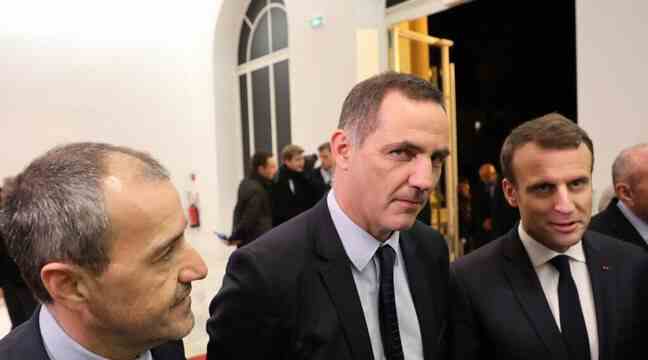Seen from the continent, the reversal of the situation is acrobatic. After having, for five years, left in “seen” the demands of the Corsican nationalists, now the Minister of the Interior, sent by Emmanuel Macron, proposes to discuss an “autonomy” of the island by the end 2022. Against the backdrop of significant and sometimes violent demonstrations by Corsican youth since the attack on Yvan Colonna in prison on March 2. To complete the picture: the FLNC announces in a press release that it could take up arms again, the day of the arrival of Gérald Darmanin on the island. The case is important: the Minister of the Interior was to stay two days, he will finally stay there three in view of the “requests, which are numerous”.
Under pressure, is the government finally letting go? “It’s the worst way to deal with the problem. Yet we had warned, we made proposals… But [le gouvernement] skewed, he acted as if that was not the problem, despite the election results, ”laments the deputy of Haute-Corse, Jean-Félix Acquaviva. Because the reopening of the Corsican file was, above all, electoral. In 2015, during the territorial elections, a nationalist list won for the first time. On the strength of his historic victory the previous year as mayor of Bastia, Gilles Simeoni took over as head of the Corsican executive, but without an absolute majority. Nationalist success was confirmed in the 2017 legislative elections: they won three of the island’s four seats.
“A missed date”
For the first elections to the new single community of Corsica, at the end of 2017, Gilles Simeoni made, from the first round, the union of the autonomists and the separatists and obtained an absolute majority. That’s when the situation escalated. Emmanuel Macron and Edouard Philippe, then Prime Minister, task the Minister for Territorial Cohesion, Jacqueline Gourault, with dialogue with Corsican elected officials. Dialogue that will turn short: in February 2018, Emmanuel Macron makes a long speech in Bastia. “To make Corsica succeed in the Republic is above all to solve the problems of everyday life”, declares the president. In addition to including Corsica in the Constitution – which did not come to fruition – the President favored regional planning and considered that the problem was not institutional: as there was no magic money “there is no there is no Magic Republic”.
“This speech is a very bad memory. It was a disproportionate show of force, ”says MP Acquaviva. The body search of elected nationalists at the entrance went rather badly, too. “The speech was harsh, even contemptuous”, recognizes André Fazi, lecturer in political science at the University of Corsica. But this “missed meeting” was missed on both sides, he continues: “After their victory in December 2017, the nationalists thought that the thing was acquired, that with their democratic legitimacy, Emmanuel Macron was obliged to to sell. They were very undiplomatic. “ Contacts are broken, Jean-Félix Acquaviva even denouncing a “belligerent attitude of the State”, in particular in the management of the Colonna case.
The landscape has changed
However, the situation has not remained frozen for four years, “the political ecosystem has largely moved”, notes Jean-Félix Acquaviva. The Corsican nationalist deputies have turned into lobbyists for autonomy in the National Assembly. The rebellious deputy Eric Coquerel confirms: “It is clear that, three elections in a row, an overwhelming majority of Corsicans voted for autonomy. The nationalists moved by proving to us that they had chosen the path of dialogue and democracy, that led us to move. As a result, MP Acquaviva now believes that there is a “sufficiently broad convergence to modify the Constitution. On the left and even sometimes on the right.
Then came the Colonna spark, the demonstrations and the government, which released ballast on the status of “particularly flagged detainees” of the members of the commando which killed the prefect Erignac in 1998. By showing itself open to an institutional discussion, the government seemed to suffer events, for Jean-Félix Aquaviva: “They are put to the test! “. André Fazi is more moderate: “The government is perhaps in a weak position and gives the bizarre impression of responding to the demonstrations. But would they have had the same weight without the democratic legitimacy that exists in the background? »
In the opinion of the political scientist, Emmanuel Macron has, in recent years, wanted to temporize “to see if the electoral success of 2017 is confirmed”. “After all, creating an exception in the Constitution, as requested, is risky! The craze at the ballot box was confirmed: in 2021, Gilles Simeoni again won an absolute majority in the Assembly of Corsica… but without the separatists, with whom the President of the Republic did not want to discuss.
In Paris, the door was therefore no longer totally closed, the events of the last few weeks have smashed it. Still, Emmanuel Macron must, less than a month before the presidential election, assume a new radical reversal compared to the start of his mandate: on pensions, on nuclear power and now on Corsica.

